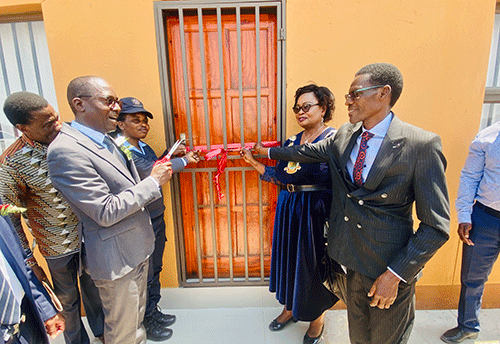One-hundred families on Wednesday became homeowners. This happened in Windhoek’s informal settlements under the Informal Settlement Upgrading Affordable Housing Pilot Project.
The ISUHPP is an initiative of the urban and rural development ministry, City of Windhoek, National Housing Enterprise (NHE) and the Khomas Regional Council.
Speaking at the handover ceremony held at Freedomland in Okuryangava, urban and rural development minister Erastus Uutoni said the completion of the 100 houses brings the total number of completed units to 395 against the target of 600 under the first phase of the project.
He added that government, with its partners, is pursuing and implementing various impactful interventions and initiatives to scale up and accelerate access to tenure security, proper sanitation and housing.
“In many local authorities such as Windhoek, efforts are also being made to accelerate tenure security in informal settlements with various methods such as the issuance of certificates of acknowledgement for land occupation, while the formal processes of land ownership registration and transfers are underway,” the minister stated.
As it stands, over 400 affordable houses have been constructed under this project since August 2020 in various informal settlements, including Havana Proper, Havana Extension 1, Onyika No 2, Goreangab Extension 4, Greenwell Matongo, Otjomuise Extension 8 and 9, and Freedom Land A and B.
A one-bedroom house under this project costs N$155 000, including land, while a two-bedroom house costs N$196 000, including land. The houses can be paid off over a period of up to 25 years. Both options come with solar geysers and a plan for future expansion of up to three bedrooms. The project targets residents with an income of less than N$10 000 per month.
At the same occasion, Windhoek mayor Sade Gawanas stated that a further 40 houses are currently under construction, with a weekly increase of completed houses.
She noted that affordable housing is a cost-effective way of lifting people out of poverty and increasing economic mobility.
“These projects are essential to stimulate economic activities, and ultimately to unlock opportunities to enhance social progression in the surrounding communities,” said the mayor.
One of the project beneficiaries, Michael Nghishiti, thanked the partners for taking them out of shacks into formal housing.
– mndjavera@nepc.com.na


